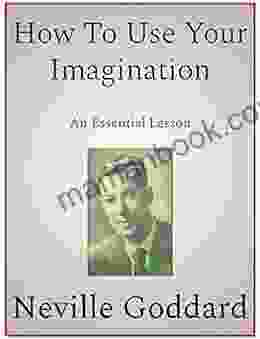People Always Make War When They Say They Love Peace: A Critical Analysis

War and peace have been intertwined throughout human history, often presenting a paradoxical and contradictory reality. While many individuals and nations claim to advocate for peace, conflicts continue to erupt around the globe, leaving behind countless lives lost and societies torn apart. This article aims to explore this complex relationship between war and peace, examining the reasons why people often resort to violence even while professing their love for tranquility.
Throughout history, numerous examples can be found of leaders and nations justifying war in the name of peace. During World War I, both sides claimed to be fighting for the preservation of peace and the protection of their respective homelands. However, as the conflict escalated, it became clear that the underlying motivations were far more complex and often rooted in political ambitions, economic interests, and territorial disputes.
Similarly, in the case of the Vietnam War, the United States government portrayed its involvement as a necessary step to prevent the spread of communism and ensure peace in Southeast Asia. However, the war's devastating consequences for the Vietnamese people and the long-term instability it created in the region call into question the sincerity of these claims.
4.4 out of 5
| Language | : | English |
| File size | : | 164 KB |
| Text-to-Speech | : | Enabled |
| Screen Reader | : | Supported |
| Enhanced typesetting | : | Enabled |
| Print length | : | 72 pages |
Philosophical perspectives on the relationship between war and peace offer further insights into this complex issue. Some philosophers, such as Immanuel Kant, have argued that war is an inherently irrational and immoral act. Kant believed that peace is the natural state of human existence and that war can only be justified as a last resort in the defense of one's own rights or to prevent greater harm.
Other philosophers, such as Carl von Clausewitz, have taken a more pragmatic view of war, seeing it as a necessary tool in certain situations. Clausewitz argued that war is a continuation of politics by other means and that it can be justified as a means of achieving political goals or protecting national interests.
Beyond historical and philosophical factors, psychological and cognitive factors also play a significant role in shaping people's attitudes towards war and peace. Research in social psychology has shown that individuals are more likely to support war when they perceive a threat to their own safety or identity. Fear, anger, and prejudice can cloud people's judgment, making them more susceptible to propaganda and less likely to question the justifications for war.
Additionally, cognitive biases such as the availability heuristic and the confirmation bias can lead people to overestimate the likelihood of threats and to seek out information that confirms their existing beliefs about war and peace. These biases can make it difficult to have nuanced and informed discussions about these complex issues.
In light of the complex relationship between war and peace, it is essential to move beyond simplistic narratives that portray one as inherently good and the other as inherently evil. Instead, we need to adopt a more nuanced and compassionate approach that recognizes the multifaceted causes of conflict and the challenges of building lasting peace.
This approach involves:
- Critical thinking: Questioning assumptions about war and peace and examining the underlying motivations and consequences of armed conflict.
- Empathy: Understanding the perspectives of those affected by war, including civilians, soldiers, and refugees.
- Dialogue: Engaging in constructive conversations with diverse viewpoints, fostering mutual understanding and seeking common ground.
- Investment in peacebuilding: Supporting initiatives that promote peace, justice, and human rights, from grassroots efforts to international organizations.
The phrase "people always make war when they say they love peace" is a sobering reminder of the paradoxical nature of human conflict. While the desire for peace is universal, the reality is often more complex and fraught with contradictions. By critically analyzing the historical, philosophical, psychological, and cognitive factors that contribute to war, we can gain a deeper understanding of this complex issue and work towards creating a more just and peaceful world.
Remember, peace is not merely the absence of war, but a positive state of well-being, justice, and harmony. It requires active engagement, empathy, and a commitment to building a better future for all. By embracing a more nuanced and compassionate approach, we can create a world where war is no longer an inevitable consequence of human nature, but a relic of the past.
4.4 out of 5
| Language | : | English |
| File size | : | 164 KB |
| Text-to-Speech | : | Enabled |
| Screen Reader | : | Supported |
| Enhanced typesetting | : | Enabled |
| Print length | : | 72 pages |
Do you want to contribute by writing guest posts on this blog?
Please contact us and send us a resume of previous articles that you have written.
 Top Book
Top Book Novel
Novel Fiction
Fiction Nonfiction
Nonfiction Literature
Literature Paperback
Paperback Hardcover
Hardcover E-book
E-book Audiobook
Audiobook Bestseller
Bestseller Classic
Classic Mystery
Mystery Thriller
Thriller Romance
Romance Fantasy
Fantasy Science Fiction
Science Fiction Biography
Biography Memoir
Memoir Autobiography
Autobiography Poetry
Poetry Drama
Drama Historical Fiction
Historical Fiction Self-help
Self-help Young Adult
Young Adult Childrens Books
Childrens Books Graphic Novel
Graphic Novel Anthology
Anthology Series
Series Encyclopedia
Encyclopedia Reference
Reference Guidebook
Guidebook Textbook
Textbook Workbook
Workbook Journal
Journal Diary
Diary Manuscript
Manuscript Folio
Folio Pulp Fiction
Pulp Fiction Short Stories
Short Stories Fairy Tales
Fairy Tales Fables
Fables Mythology
Mythology Philosophy
Philosophy Religion
Religion Spirituality
Spirituality Essays
Essays Critique
Critique Commentary
Commentary Glossary
Glossary Bibliography
Bibliography Index
Index Table of Contents
Table of Contents Preface
Preface Introduction
Introduction Foreword
Foreword Afterword
Afterword Appendices
Appendices Annotations
Annotations Footnotes
Footnotes Epilogue
Epilogue Prologue
Prologue William F Amato
William F Amato Judy Folger
Judy Folger James D Shipman
James D Shipman Aimie K Runyan
Aimie K Runyan Ray Lacina
Ray Lacina Trevor Clinger
Trevor Clinger Thomas Perry
Thomas Perry Roberta Kagan
Roberta Kagan Johnny Hiland
Johnny Hiland Floyd Cobb
Floyd Cobb Shah Peerally
Shah Peerally Malcolm X
Malcolm X Lisa Renee Jones
Lisa Renee Jones Keisha Brooks
Keisha Brooks Carl Sandburg
Carl Sandburg Steven Heighton
Steven Heighton Emma Slate
Emma Slate Sarah Ockwell Smith
Sarah Ockwell Smith P G Van
P G Van Maria Elena Reyes Schafer
Maria Elena Reyes Schafer
Light bulbAdvertise smarter! Our strategic ad space ensures maximum exposure. Reserve your spot today!

 Francis TurnerUnleash the Power of Imagination: Explore the Art of Creating, Enriching, and...
Francis TurnerUnleash the Power of Imagination: Explore the Art of Creating, Enriching, and... Ernest ClineFollow ·12.9k
Ernest ClineFollow ·12.9k Elton HayesFollow ·5.7k
Elton HayesFollow ·5.7k Levi PowellFollow ·17k
Levi PowellFollow ·17k Bryson HayesFollow ·13.1k
Bryson HayesFollow ·13.1k William FaulknerFollow ·12.8k
William FaulknerFollow ·12.8k H.G. WellsFollow ·4.4k
H.G. WellsFollow ·4.4k Gerald BellFollow ·11.6k
Gerald BellFollow ·11.6k Ernest HemingwayFollow ·17.2k
Ernest HemingwayFollow ·17.2k

 Ernest Powell
Ernest PowellBenefits of Corporal Punishment: A Review of the...
Corporal punishment is a form of physical...

 Bobby Howard
Bobby HowardThe Development and Significance of African American...
African American...

 Guy Powell
Guy PowellDown Girl: The Logic of Misogyny - A Comprehensive...
In her groundbreaking work,...

 Forrest Blair
Forrest BlairThe Bikini Changing Room: A Micro Mini Romance
In the heart of...
4.4 out of 5
| Language | : | English |
| File size | : | 164 KB |
| Text-to-Speech | : | Enabled |
| Screen Reader | : | Supported |
| Enhanced typesetting | : | Enabled |
| Print length | : | 72 pages |














